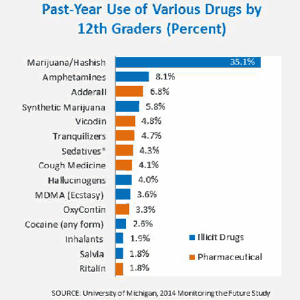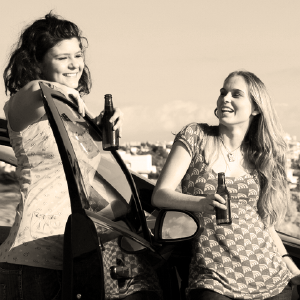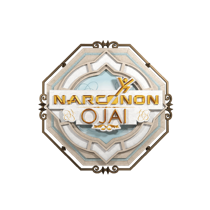Why Do People Start Using Drugs?
There’s a first time for everyone. The first time they drink a beer, glass or wine or a shot of hard liquor. The first joint, the first pill they take without a prescription or a need. Why do they do it? Genetics aside, a reason can be found for the first time a person reaches out that hand the first time for an intoxicating substance.
Here’s the most common reasons we’ve heard in our interviews with those who have come to us for rehabilitation after addiction.
1. Everyone else was doing it.
A young person walking into a party where everyone is drinking or smoking weed is faced with a unique kind of peer pressure. If he refuses to join in, the drug users may feel accused of some wrongdoing and go on the attack. It feels easier to just do what they are doing. After all, no one seems to be coming to any harm at the moment. The same thing can happen if you tell people at a party or wedding that you’re not drinking. You’re excluding yourself from the main group and sometimes this means you will face criticism or disbelief.
2. Everyone seemed to be having fun.
When your friends are laughing, euphoric and energetic, it can look like they are having a lot of fun. A teen looking at this scene may feel like he (or she) deserves to have fun too. What he’s not looking at is the hangover or energy crash the next day, or the grades that fell out the bottom when the partying replaced schoolwork. Chances are pretty good that he won’t see someone overdose and have to be rushed to the hospital that first night he’s thinking about using drugs with his friends. He only sees the laughing and partying — a false picture of what drugs do to a person.
3. I deserved a break, some relief.
It’s certainly true that drugs and alcohol blot out stresses and problems. When a person is drunk or high, he can’t remember problems and therefore doesn’t feel stressed out about them. For some people, this is a compelling reason to start using drugs. At the beginning, it’s not obvious that this solution will make things far worse. It could take months or even a year or more for the accumulating damage to become apparent. Whatever problems or stresses exist, drug use will pile on far more.
4. Drugs helped me feel accepted, like I fit in for the first time.
Many people talk about how, the first time they got high or drunk, they realized they were comfortable with others for the first time. Maybe they had been shy or self-conscious or didn’t know how to talk to boys/girls. Maybe they had just moved and didn’t have friends yet until they met a group of pot-smoking kids. Joining them in their smoking would help a person fit right in. It takes courage and discipline when one stops using drugs as a crutch and learns how to deal with people and relationships for real.

5. I was really curious.
A few people simply wonder what it’s like to be drunk or high. So they join in the drug or alcohol use. What makes this exceedingly dangerous is what some people have said about drugs like OxyContin, methamphetamine or heroin: They first time they tried it, they loved it. They’d never felt anything so wonderful. They couldn’t wait to use it again. For some people, that curiosity puts them in contact with a substance that will addict them and ruin their lives.
6. I would do anything bad, anything my parents didn’t want me to do.
When a young person is rebellious, this attitude will tend to drive him in the direction of whatever his parents are telling him not to do. Don’t go out with that girl? He does. Don’t drink or smoke weed? He will. This contrariness presents a unique challenge for a parent. With a child like this, it’s more successful to try to find out what positive activity he’s interested in and support that, rather than try to convince him to stay away from drugs and alcohol.
7. I was hanging out with the wrong people.
A young person who has not yet developed a sense of personal integrity can easily be swayed by friends and acquaintances. On top of that lack of integrity, add a difficulty making new friends and it’s easy to see how a young person can fall in with an unsafe crowd. This is particularly true if a teen moves from a low-drug area to one with a greater supply. As he searches around for a group that will include him, he may find acceptance if he participates in the drug use of a social group. The same phenomenon can occur when a sober youth goes off to college or a first job. It’s very helpful to make sure your child is prepared for the challenges of these transitional periods.
That first time an individual reaches out for a drug or drink, it’s not addiction driving him (or her). It’s usually one of the reasons listed here. For a certain percentage, however, that first encounter will eventually wind the individual up in full-blown addiction. Some of these addicted individuals will overdose or die from substance-abuse related accidents or assaults.
If a teen or young adult can be motivated to meet the challenges of life and overcome them, and is educated on the real problems that arise from the use of drugs as entertainment, stress relief or other apparent solution — then that person has a chance to make it all the way to adulthood sober, healthy and safe.
That’s why the Narconon drug rehabilitation program emphasizes life skills so much. We know that putting a person in good condition again means building strong life skills so solutions like booze or pot don’t look appealing. After the early steps of our program brighten a person up and help them return to living in the present, our life skills training develops the skills to handle communication, problem-solving, choosing safe associates and recovering one’s personal integrity. These are the most essential skills a person needs to maintain that sobriety long after they return home. Call us at Narconon Ojai for more information on how this life skills training can help someone you care about.


